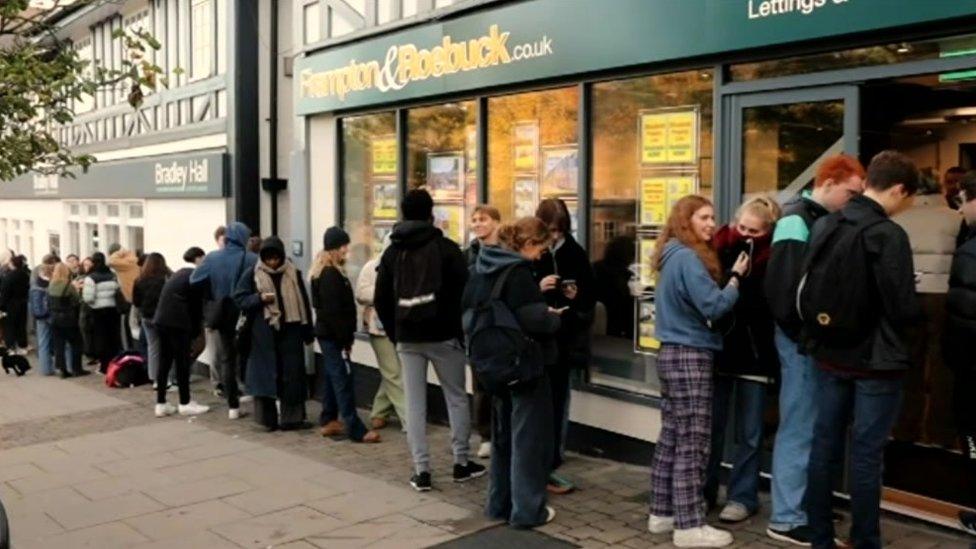Durham student housing code of conduct 'too weak'
- Published
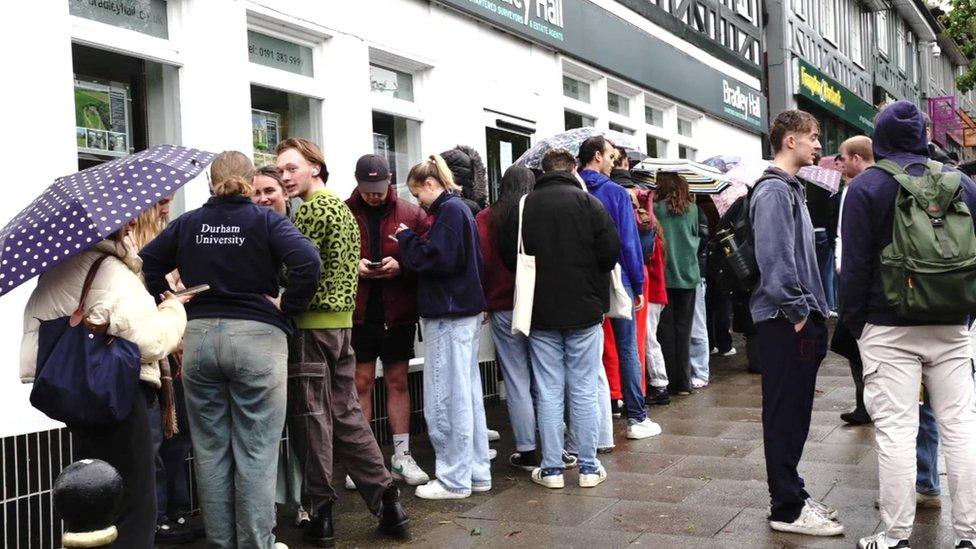
Students queued outside estate agents in Durham in October
Students have branded a code of practice aimed at alleviating a university housing crisis "too weak", after some lettings agents pulled out.
It was set up after chaotic scenes in 2022 when students in Durham queued overnight to secure accommodation amid rent rises and claims of shortages.
The voluntary scheme was meant to ensure students were not put under "unfair pressure" when signing leases.
Durham University said it was "limited" in what action it could take.
While accommodation is guaranteed for the first year, students have to find their own home for the following year just weeks after moving to the city.
Private sector accommodation is released by lettings and estate agents in a process known as 'the drop', where multiple homes are advertised around the same time.
The voluntary code of practice was aimed at stopping that, external, as well as addressing issues around contracts.
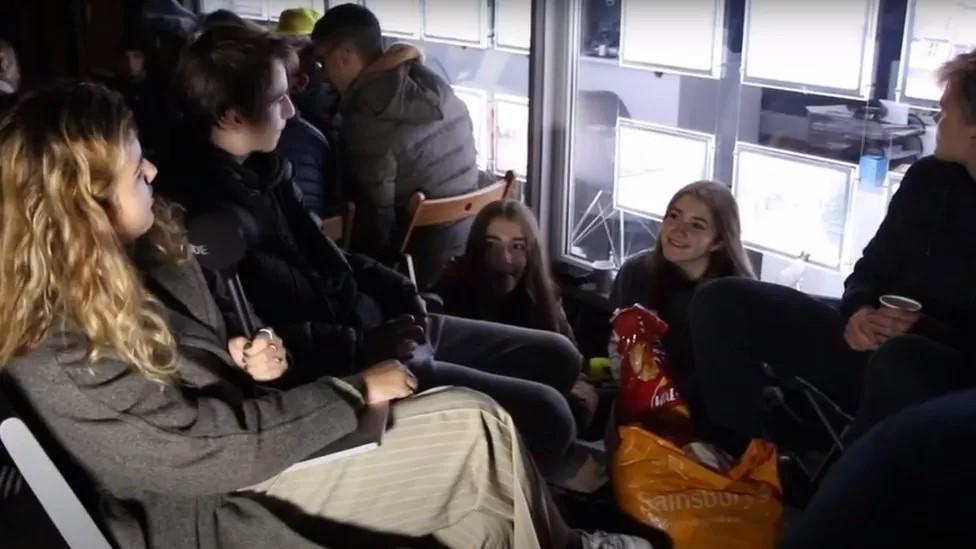
Students being interviewed by Pal TV in October 2022 while camping out overnight outside lettings agents
Although not on the same scale as last year, "visible queues" were witnessed outside some estate agents in October.
Charlotte Beech, a fourth year natural sciences student from Sunderland, said several groups viewed her home on the same day, with two "physically racing" to the estate agents to take it.
She said one group "looked on the verge of tears" as an international student could not get a guarantor in time.
"I felt completely and utterly powerless," she said.
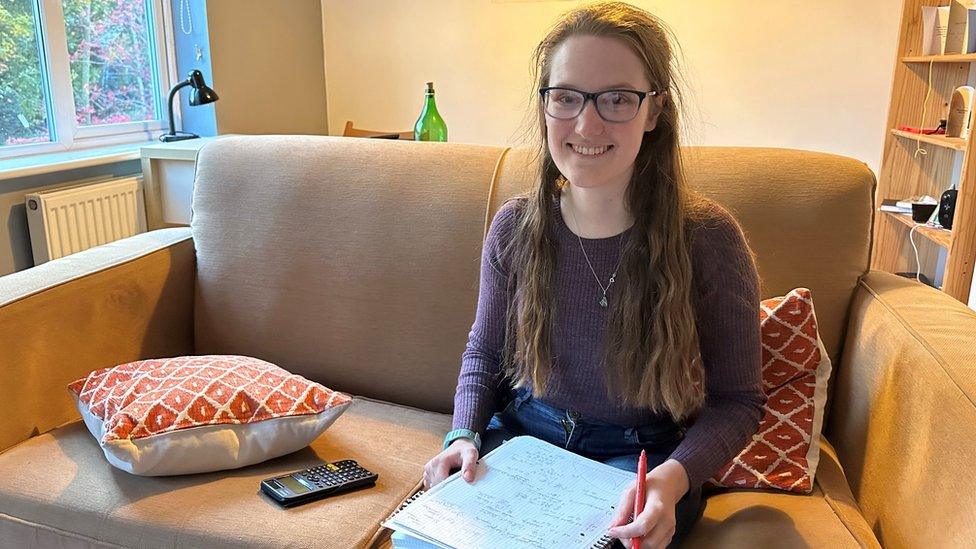
Fourth year student Charlotte Beech says she has experienced the stress of securing housing while at Durham
The 21-year-old has faced her own challenges in finding a house during her studies.
"In our first year we signed [for a property] in the very last week of term," she said.
"In my third year we were signing two weeks after Freshers, having not viewed the house and having to go knocking on strangers' doors."
Durham students' union said the code of practice had been "a significant step towards a better housing landscape", but after some agents pulled out due to a disagreement over release dates it failed to have the impact it was supposed to.
It has called on the university and Durham County Council to step in, external, and it hit out at the lack of affordable properties.
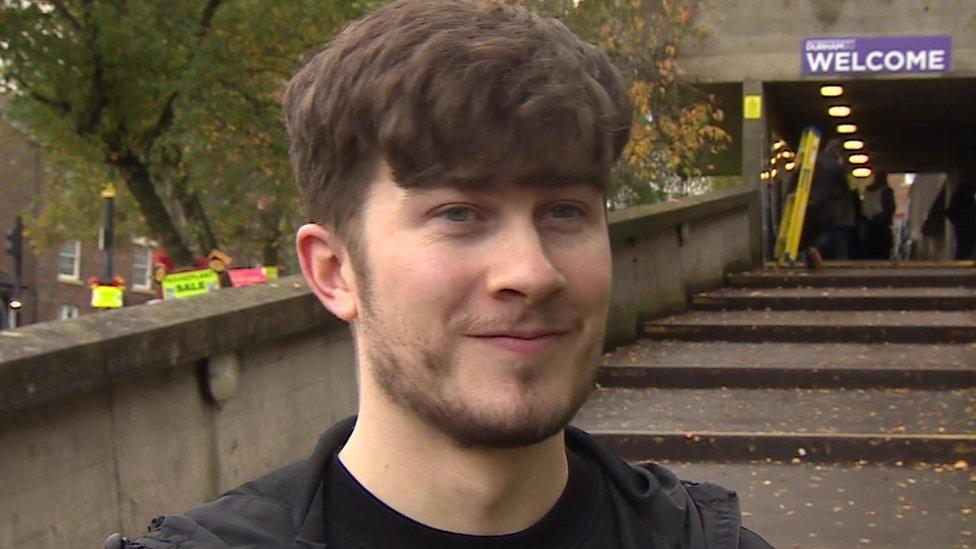
Durham Students' Union president Dan Lonsdale wants property releases to be staggered
President Dan Lonsdale said some rents had increased by up to 20% this year, which worked out at about a 50% rise over the last two years.
"Last year was a crisis of supply, this year almost certainly a crisis of affordability and therefore affordable supply, finding a house that is cheap enough to afford that isn't falling apart either," he said.
"Students need that support to be more than just a code of practice."
Durham University said it was "determined" to ensure it has a housing market "that works for everyone" and there was financial support in place for struggling students.
"We had hoped the code of practice would also include a 'no earlier than' release date for properties, to prevent students feeling under pressure to find housing so early in the year, however not all agents were willing to do so," a spokesperson said.
"Based on feedback from this year, we will try again for next year.
"We acknowledge that affordability and cost of living pressures are a concern for many students."
Michael Kelleher, Durham County Council's head of planning and housing, said the authority worked closely with Durham University "to understand its student numbers and accommodation requirements".
"Councils do not have any powers to compel landlords to sign up to a code of practice, nor do they have any control over what private landlords charge for existing rented properties or how and when they choose to release properties on to the market," he added.

Follow BBC North East on Facebook, external, X (formerly Twitter), , externaland Instagram, external. Send your story ideas to northeastandcumbria@bbc.co.uk, external.
Related topics
- Published18 July 2023
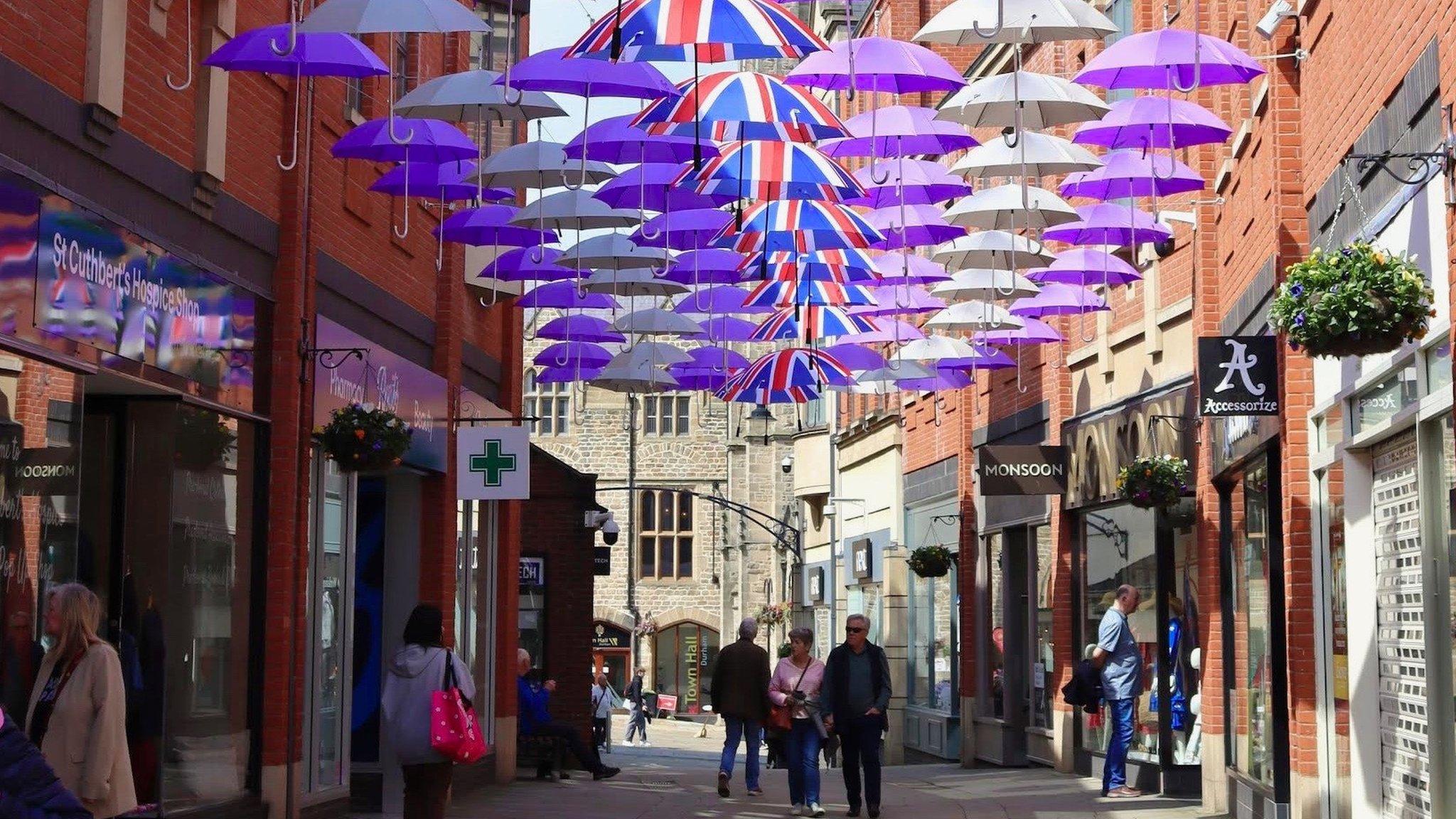
- Published2 June 2023
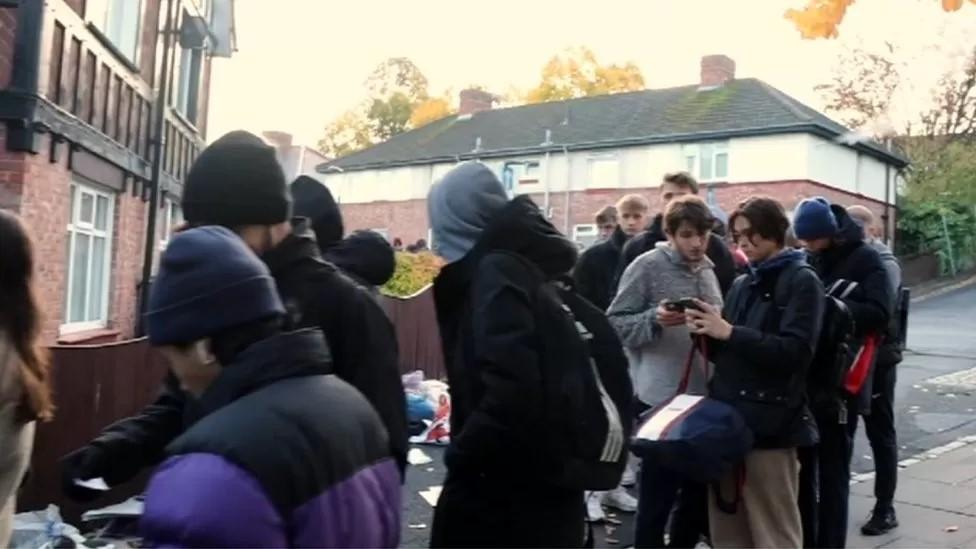
- Published28 October 2022
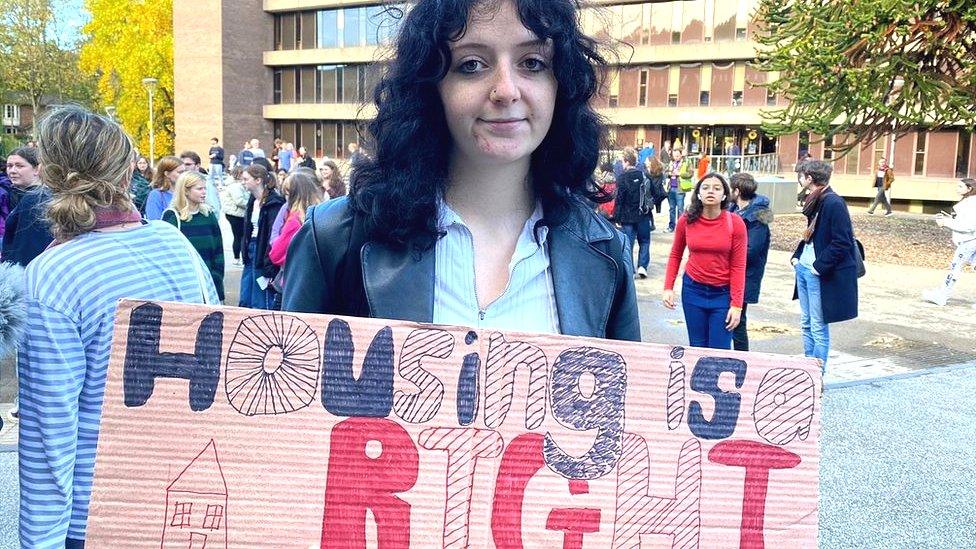
- Published27 October 2022
